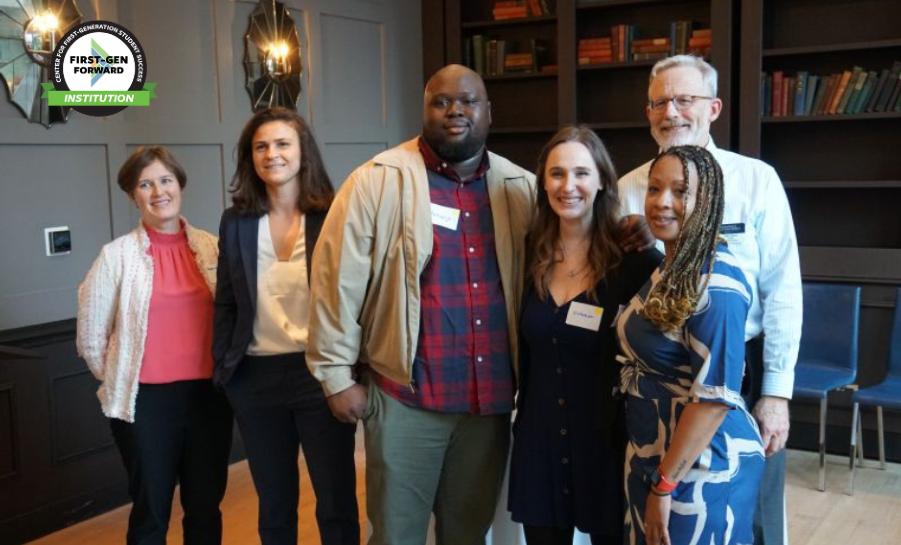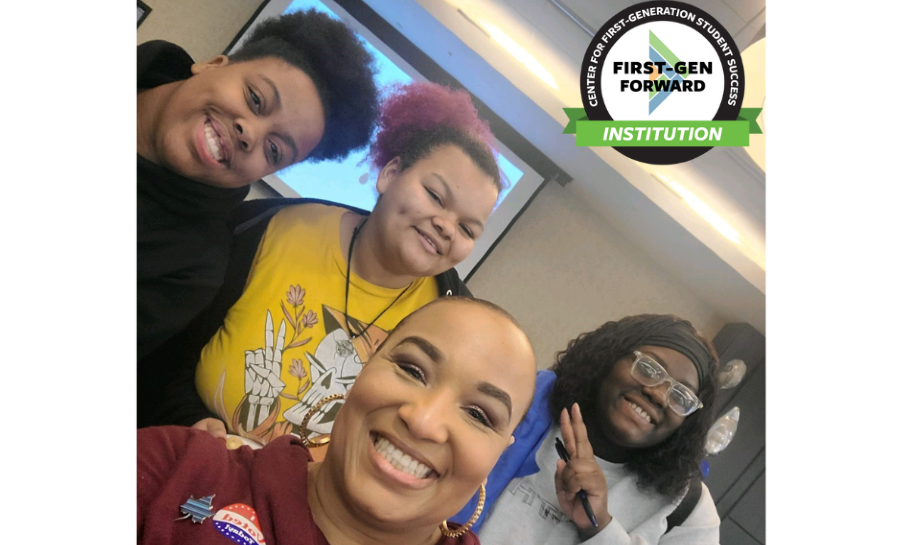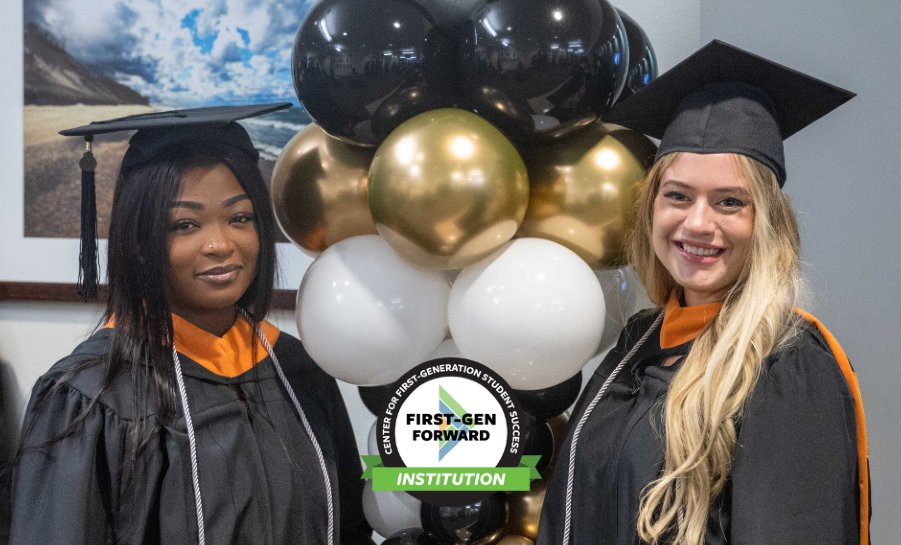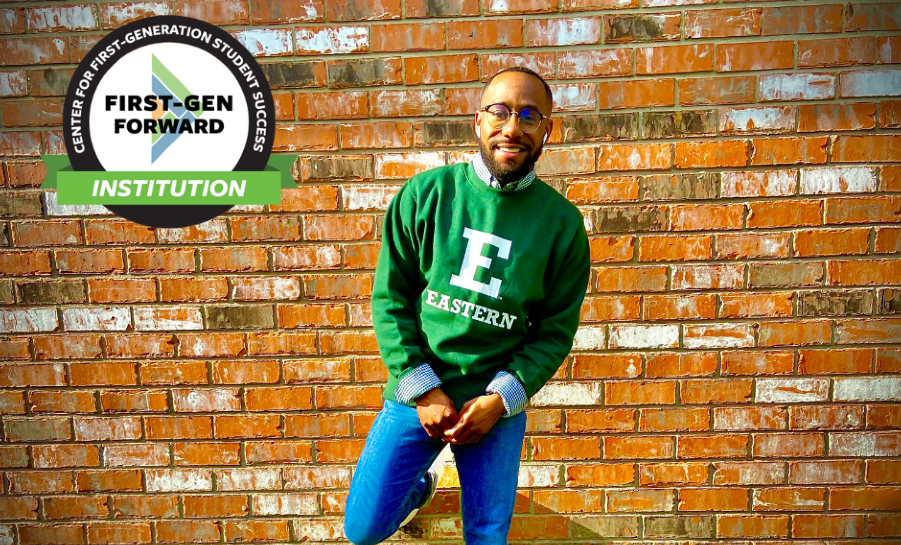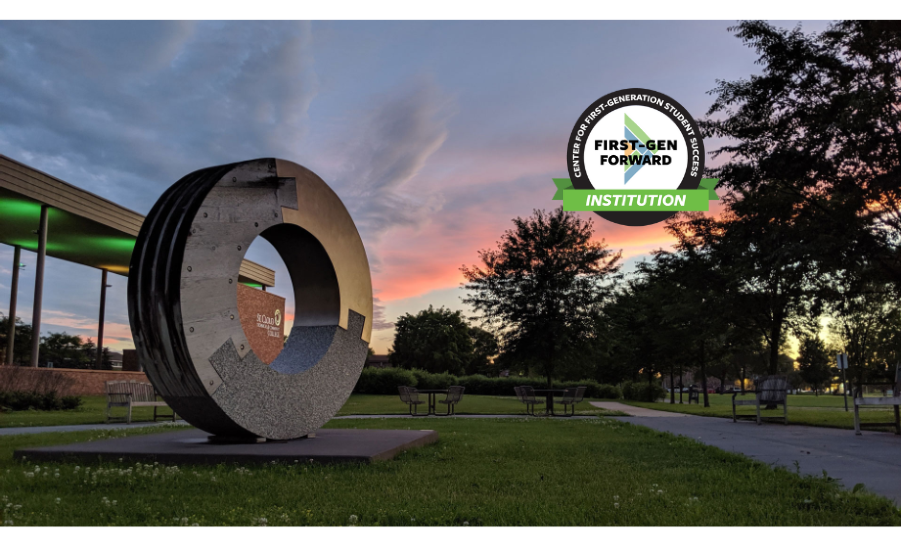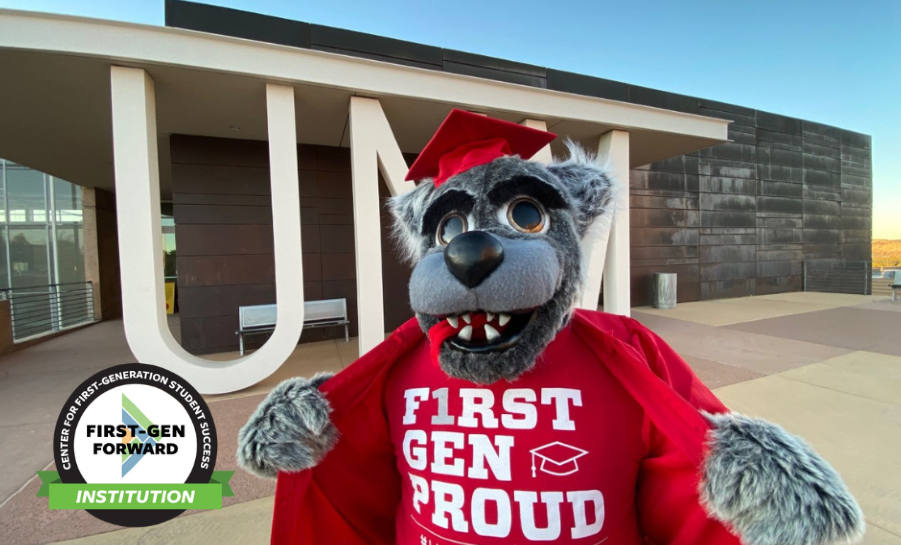Maximizing culture and the familiar to reach first-generation students
Keith Baltimore, National Louis University / FirstGen Forward / October 12, 2022
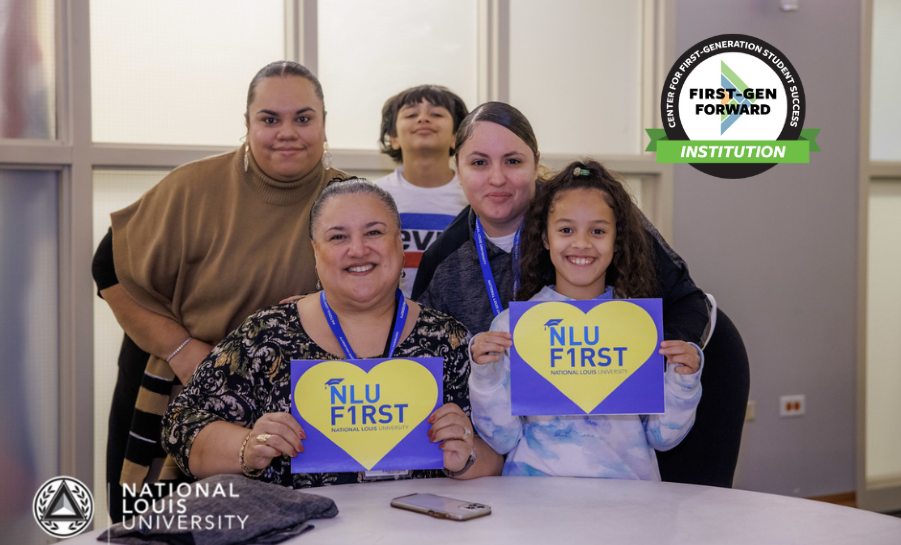
Support for first-generation college students can take many forms. The methods, style, and resources offered may often be a reflection of the university’s values, goals, and student population. As a Hispanic Serving Institution (HSI) and a Minority Serving Institution (MSI); National Louis Universities actively recruits, admits, and supports students of diverse cultural, ethnic, and racial backgrounds. Our approach to supporting the success of first-generation students involves a purposeful integration of a student’s current needs, the student's unique background, and the university mission of access. Our Office of Diversity, Equity, and Belonging has been able to develop programming and outreach that utilizes familiar cultural, and artistic tools to motivate and challenge first-generation students to develop in areas that are necessary for college success. Art forms, specifically music, can be used to leverage personal growth, identity development, and values to increase retention and belonging for first-generation students.
NLU’s First-Generation Luncheon
Like many institutions across the country; the pandemic and the nationwide shutdown loomed heavy over the college experience. This was particularly challenging for students experiencing college for the first time. For first-generation students with little or no reference for the day-to-day college experience, the absence of normalcy only compounded their feelings of isolation and confusion. It was challenging to develop a routine for learning and discovering college without a community of like-minded people.
National Louis responded to this issue by offering a First-generation Luncheon in the Fall of 2022. Students came together for lunch to meet and celebrate each other but they left with personal strategies to navigate college and future changes. Participants heard speeches from two current first-generation students. As they listened, they resonated with their journey of experiencing isolation, family adjustments, and imposter syndrome. By openly communicating a shared struggle; students were able to establish a strong familiarity with new peers and supporters. It was the sharing and listening to these familiar struggles that lead to the discovery of the significance of culture and identity in the college experience. The accessible and welcoming recognition of cultural heritage throughout the event communicated broad support and invited students to integrate their cultural backgrounds into their college experience. Students displayed great pride in their status as first-generation students of various ethnic, and cultural backgrounds by also including their children and parents in the luncheon experience.
Maximizing culture and belonging to retain students
National Louis University introduced a series of Interfaith Celebration in the Winter of 2023. Each month, a different faith or religious tradition was celebrated and explored thru a lunchtime event that emphasized storytelling, dialogue, food, and musical performances. As a former university Chaplin, I’ve observed that National Louis University is not religious in its identity. However, after offering this experience, a thirst for cultural celebration and deeper discussions about respect, identity, and success began to take place more frequently. As the organizer of this series; my first observation was that the same students who participated in the Interfaith Celebrations series were also the participants from our first-generation programs. Our first-generation students clearly yearned for the community, but they also needed further validation of their identity, their background, and their beliefs. These Interfaith Celebration experiences clearly provided that validation. Initially, these events were an opportunity for students to have lunch and just listen to music. However, what they lead to were deeper discussions and reflections on respect, belief, and what our students need to thrive in college. The emphasis on music was a marketing and disarming strategy to get the attention of students. Students who did not practice that tradition or had no tradition were put at ease by the emphasis on music because they could participate without feeling as if they were intruding or disrespectful to another’s background or tradition. Again, our first-generation students dominated participation in these experiences. This gave us more understanding of their specific needs and their desires. We were able to learn more about our first-generation students’ needs and desires by following four primary objectives:
1. Facilitating deliberate discussions of culture, God, beliefs, and differences should be performed in the community with others during the event.
2. Maintaining a focused and unapologetically celebration of a cultural, artistic expression, and musical tradition keeps the learning about and development of ideas and not political beliefs.
3. Purposely share new or challenging information rooted in theory, history, and lived experiences.
4. Utilize the talent and experiences from our community as much as possible.
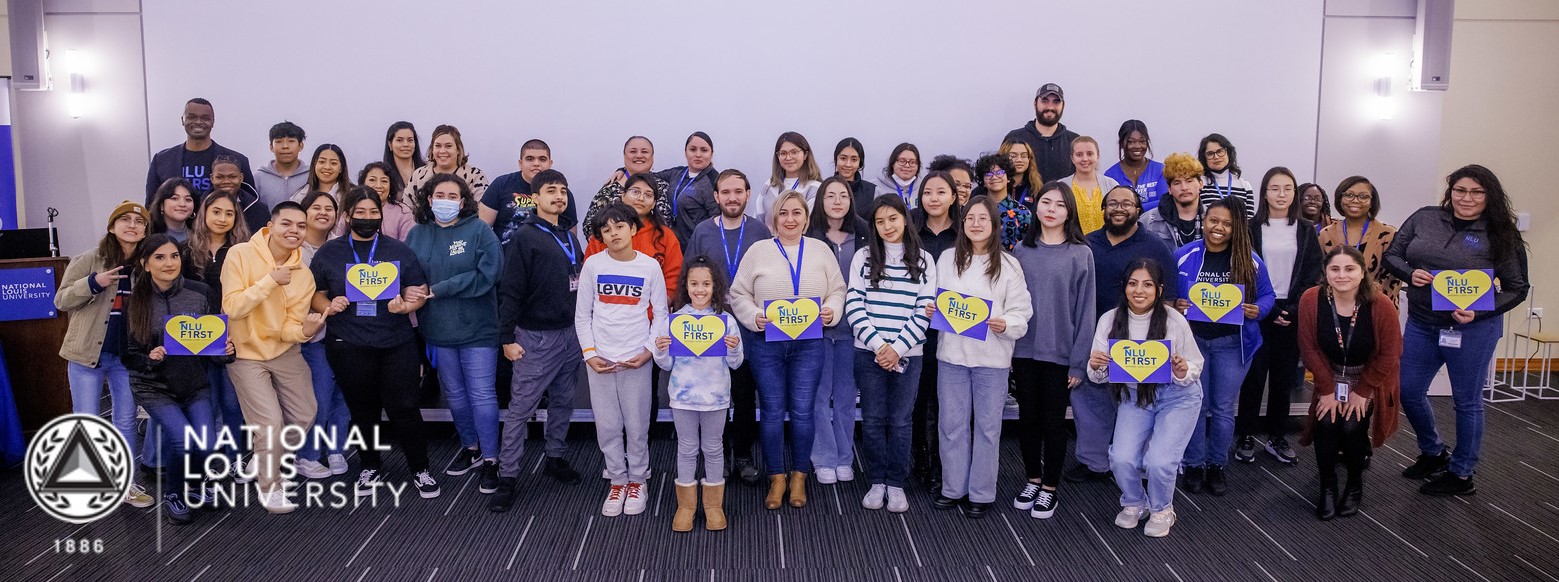
The intentional focus and celebration of different cultures and traditions immediately relayed our openness to celebrating a student’s authentic self. If we as a university are willing to celebrate the unseen and overlooked student; then we are also willing to support the college journey of a student who is not “college material” because they don’t possess the ideal background.
What we’ve learned First Generation students and Cultural Celebrations
The cultural and artistic engagement with our First-Generation students provided 3 major takeaways about belonging, community building, and success. They are:
• The invitation is often more important than the actual event. Our students wanted to be invited to experience even if they could not attend. The invitation relayed that someone was thinking about them and wanted to include them.
• Demystifying the journey to college success for a First-Generation student is rooted in a focused welcoming program that recognizes authenticity as an advantage. First Gen students arrive on campus feeling like the college experience is beyond them, and that they are not “the right” person for college. All of our programs are designed to give students permission to redefine the image of the “quintessential college student”.
• The celebratory use of art and music properly can have a disarming effect. It allows students to let down their protective walls in order to receive the information, correction, and guidance needed.
National Louis University's outreach to students of different cultural backgrounds, highlights the large population of First-gen students across the university. To raise up first-gen students at NLU is to raise the student at NLU. All of our programming, events, and experience designed for student retention must also integrate some relevant form or features of one’s culture for celebration and for learning. At its root, our university seeks to capitalize on culture and art as a tool of engagement and retention because culture and the artistic expression of one’s culture are values our students bring to our university. We are using the natural draw of music and culture to redirect our students to increased involvement on campus and significant connections with each other.
